War turned schools into homes for refugees in northeast Syria – ”We left everything behind”
In the school buildings turned into refugee centres, people try to stay warm, and to keep alive the memories of the homes, gardens and lives left behind.
Al Jarir is one of the biggest refugee camps in the city of Hassakeh, located in northeast Syria. The camp started to fill up after Turkey launched its military operation in northeast Syria in October, forcing 200,000 people to leave their homes.
To many people, the word “refugee camp”, conjures an endless row of tents. At Al Jarir, the building serving as a refugee centre used to be a school. Because of the war, children in many parts of Syria have been unable to attend school for years, but at least the school building itself can now provide internally displaced people with walls around them.
Some of the families in the camp have fled several times. Nine years of war is a long time.
It is winter in northeast Syria as well. As the sun sets, the rooms get cooler. When the temperature outside nears zero degrees Celsius, the inside of the building is a cold place to sleep in, even though the families with an average of seven members live in close quarters.
”My only dream is to have a room with heating. That is enough. I don’t have any more dreams left. I’m tired of this cruel war,” says Maryam Al Saleh, 32.
The classroom floors are covered with thin mattresses meant for emergency housing, blankets, and cardboard boxes from aid organisations. Some families share their room with another family.
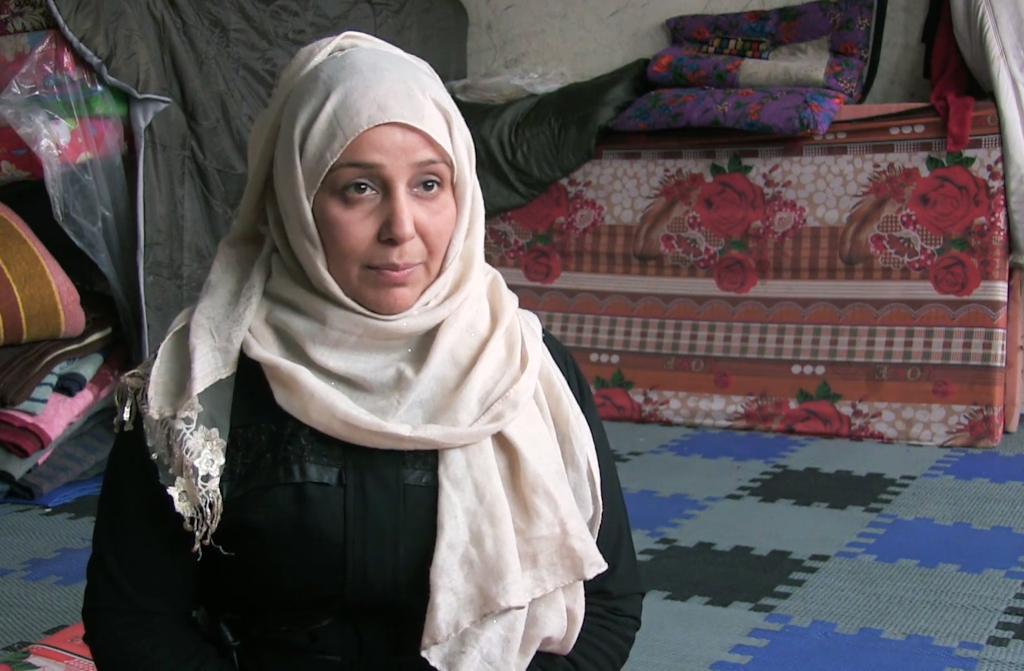
Maryam Al Saleh’s family fled to Hassakeh from the city of Ras al-Ayin shelled by Turkey in October.
”We left everything behind”
In early October, the Turkish troops started shelling Al Saleh’s hometown Ras al-Ayin, located right on the border between Syria and Turkey. The family of seven ran for their lives.
”We left everything behind; clothes, canned food, everything we own. I didn’t even receive my last salary,” Al Saleh tells.
When the shelling and air raids began, youngsters passing by on motorcycles helped the family escape, transporting Al Saleh along with her husband, four daughters and son to within a safe distance from the city. They travelled the rest of the way to Hassakeh onboard a lorry.
Finn Church Aid (FCA) has granted 100 000 euros from its relief fund to support humanitarian operations in northeast Syria.
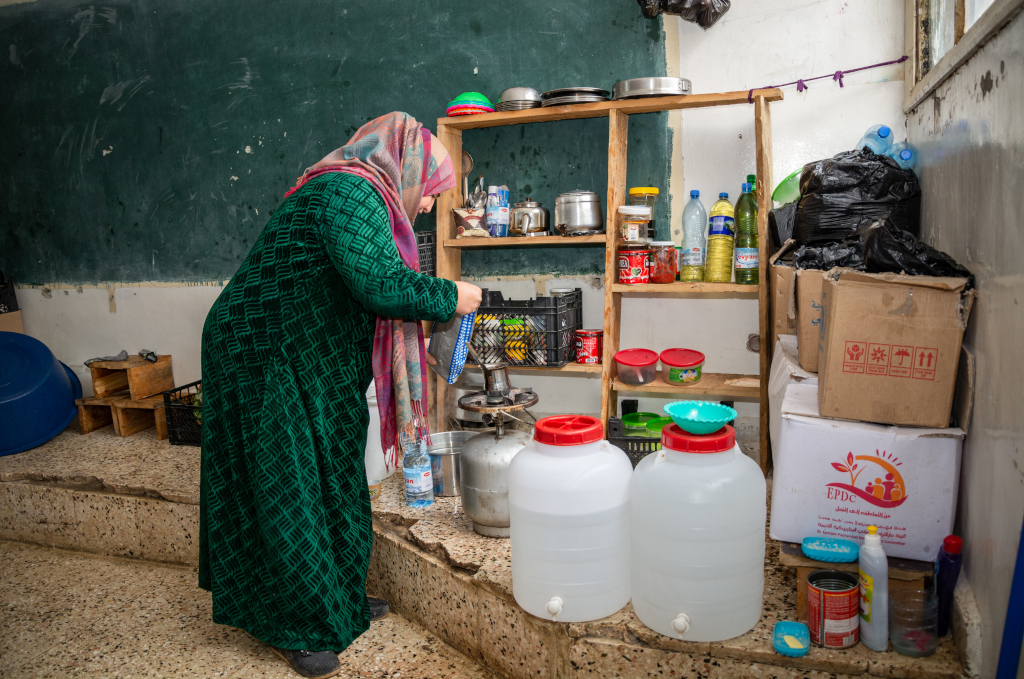
According to Maryam Al Issa, 41, what is hard about being a refugee, in addition to losing your home, is not receiving help to process the trauma caused by the war. Since October, the family of seven has been living at the Ismael Toqan refugee centre in the city of Hassakeh, northeast Syria.
Nearly 80,000 people still waiting to return home
The stories of the families who have ended up in the Hassakeh refugee camps are very similar: the air strike in October, along with other military operations, hit their home, forcing them to leave so quickly they did not have time to take anything with them.
The situation in northeast Syria is still very unstable, even though a truce was declared in the region at the end of October. This is why tens of thousands of people are still unable to return home. They may not even have anything to retrieve or to return to waiting back home.
The need for humanitarian aid is enormous.
According to the United Nations Office for the Coordination of Humanitarian Affairs (OCHA), around 80,000 people are still living as internally displaced people in northeast Syria, even though more than half of those who fled in October already have been able to return home.
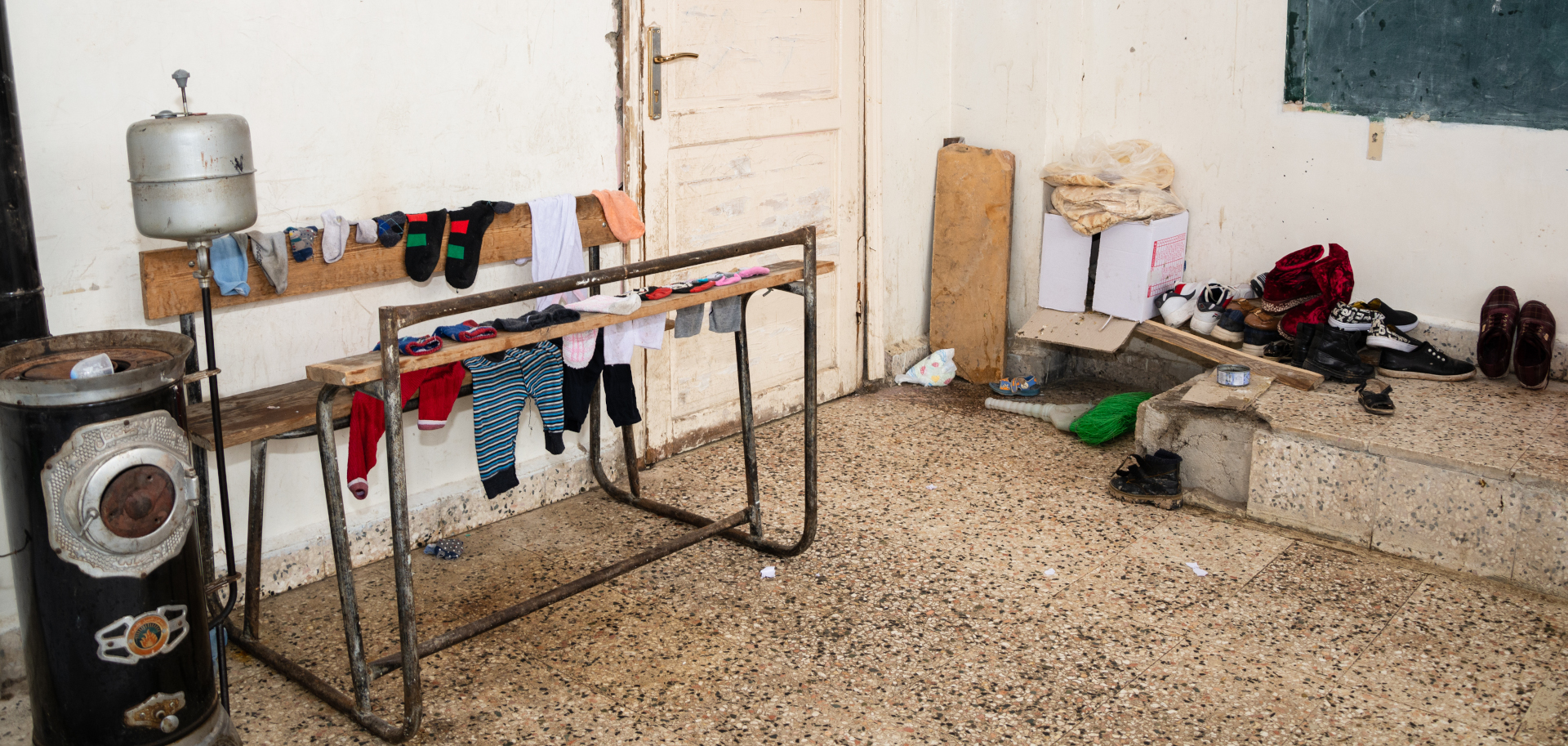
Kuva entisestä luokkahuoneesta, joka toimii nyt syyrialaisperheen kotina Ismael Toqanin pakolaiskeskuksessa Hasakassa.
Shortage of everything, especially warmth
The winter conditions in northeast Syria are putting strain on families with children as well as the elderly in a cruel manner. At night, the temperature in Hassakeh drops near zero degrees Celsius, and even during the day, it only gets to around 10°C.
Maryam Al Saleh says that there is a shortage of everything at the Al Jarir refugee camp, but people are particularly in need of heaters, blankets, extra clothing, and possibly more carpets to insulate the surface people sleep on from the cold floor.
”We urgently need diapers and breastmilk substitutes for babies as well. My children don’t even have socks,” says Al Saleh.
The poor hygiene, as well as the inadequate toilet and shower facililties further complicate the living conditions of the Al Jarir camp. Children are at particular risk of falling victim to various epidemics going around at the camp.
With the support of FCA, the camp is provides equipment needed to purify and store water.
”At this point, water tanks are important, because the local water supply is damaged and there is a shortage of drinking water in the area,” explained FCA Regional Director for the Middle East Ashraf Yacoub in the autumn.
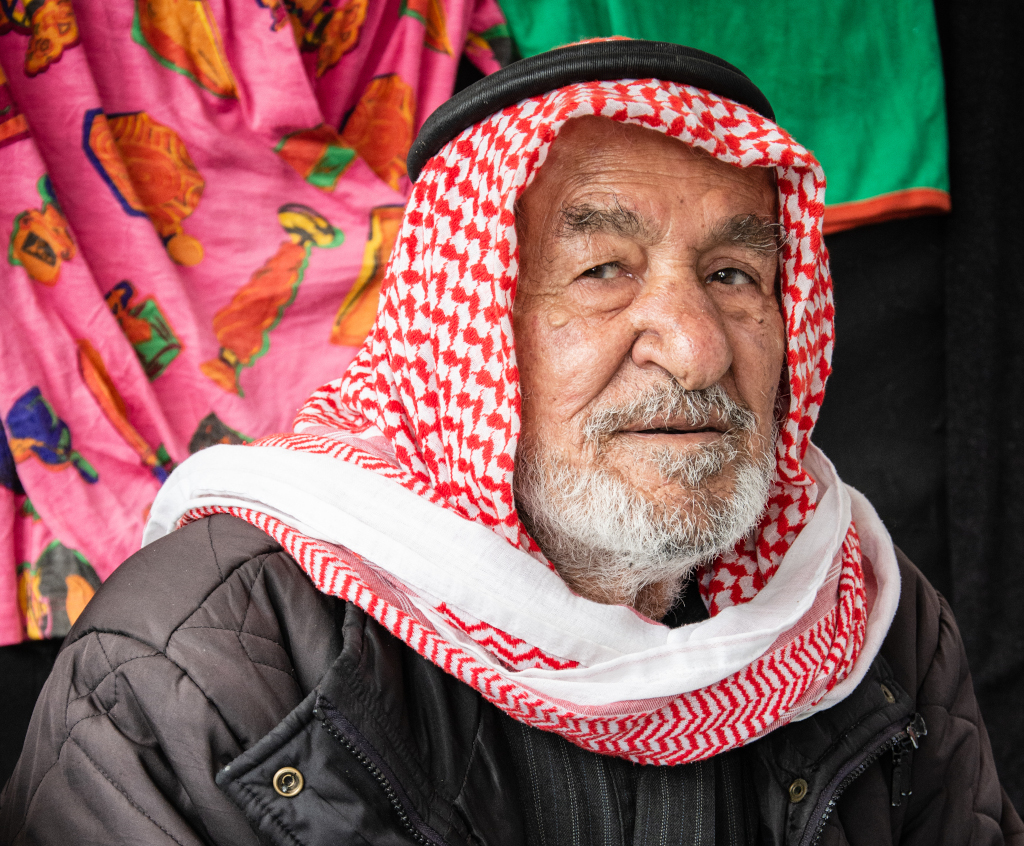
80-year-old Mohammad Khlaif Al Suleiman became a refugee in October. Now he misses his home, as well as his garden that provided him with vegetables to sell at the market.
Dreams of the home left behind
The lengthy war and ongoing life as a refugee have robbed thousands of Syrians of everything they have worked for during their life.
At the Ismael Tuqan refugee centre, also located in the city of Hassakeh, Mohammad Khlaif Al Suleiman, 80, reminisces about the garden of his former home.
”I used to grow vegetables in my big backyard. I picked fresh courgettes, used some of them for cooking myself, and sold the rest. The garden also had tomatoes and cucumbers growing in it, and there was a well that supplied all of us, my family and my plants, with fresh water,” says Al Suleiman.
The war forced the family to leave behind both the house and the garden.
”Now, in the despair and suffering of the war, I miss all of that,” says the elderly man.
He says that he was against leaving his home even after his hometown was hit for the first time.
”My children came to me and insisted that we leave immediately. At first, I refused to leave my little kingdom and everything I had spent my entire life to build.”
Finally, it became clear that the only way to survive was to leave. According to Al Suleiman, the air strikes flattened some of his neighborhood.
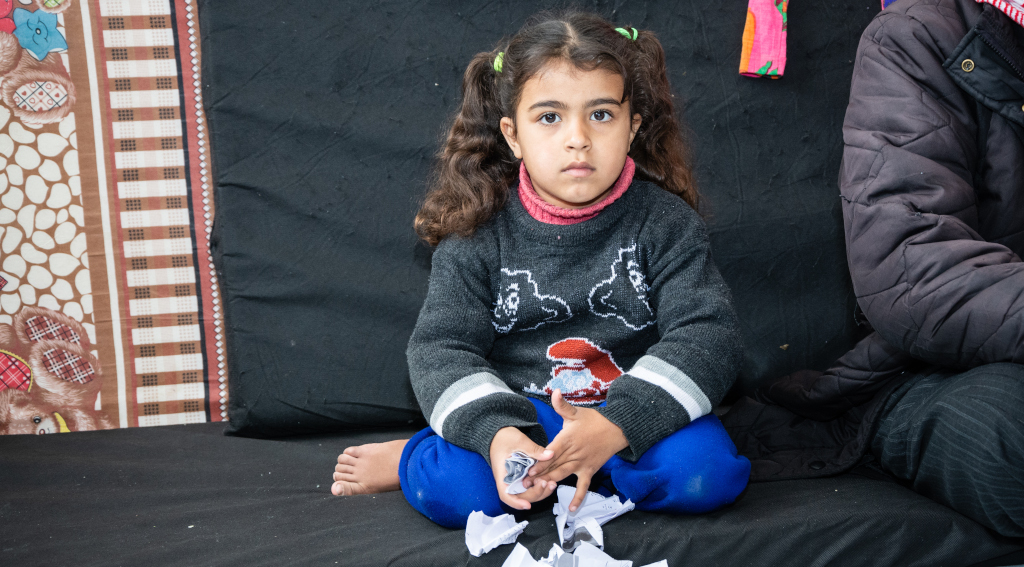
Many of the children at the Ismael Toqan refugee camp do not have proper winter clothing.
”There are many innocent people here now lacking the basic necessities of life”
Now, Al Suleiman’s entire family is living in the refugee centre. Two cold rooms accommodate Al Suleiman and his wife, along with the families of their grownup children, a total of twelve.
In addition to heat, the family is in need of more food. During the first two months, food supplies were handed out to the residents of the refugee centre once a week. According to Al Suleiman, there is a need for clothing as well. As he ran from home, he was only able to take with him the clothes that he was wearing.
”When my clothes get dirty, I ask someone to wash them. Then I wait for the laundry to dry, wrapped in a blanket,” says the elderly man.
He is also unhappy about how crowded the cooking facilities of the refugee centre often are.
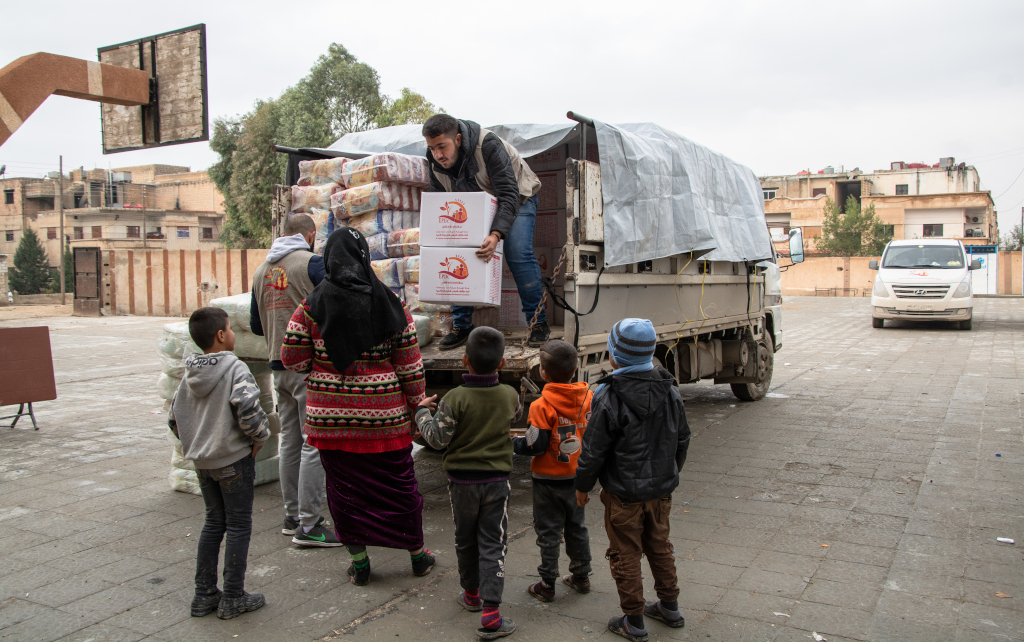
Over the winter, the FCA’s Syrian church-related partner organisation has provided the refugee camps in northeast Syria with aid supplies.
Around the turn of the year, the refugee camps in northeast Syria have also received food aid, kitchen utensils and blankets. The people living in the camps have no chance of earning a decent livelihood, and thousands of people who left their entire lives behind, are now forced to live their lives on standby, relying on aid from others. This even affects Al Suleiman’s mood.
”Now that the war has destroyed my country, my only wish is to die, because I have lost everything,” says the elderly man.
However, he has a message for the future.
”I implore the fighting parties, as well as all parties with influence all over the world, to remember that there are many innocent people here now without the basic necessities of life. There are millions here without medication, food, clothing, furniture, or heaters.”
Interviews and photos: Abu Talib Al Buhaya
Text: Elisa Rimaila
Translation: Leena Vuolteenaho